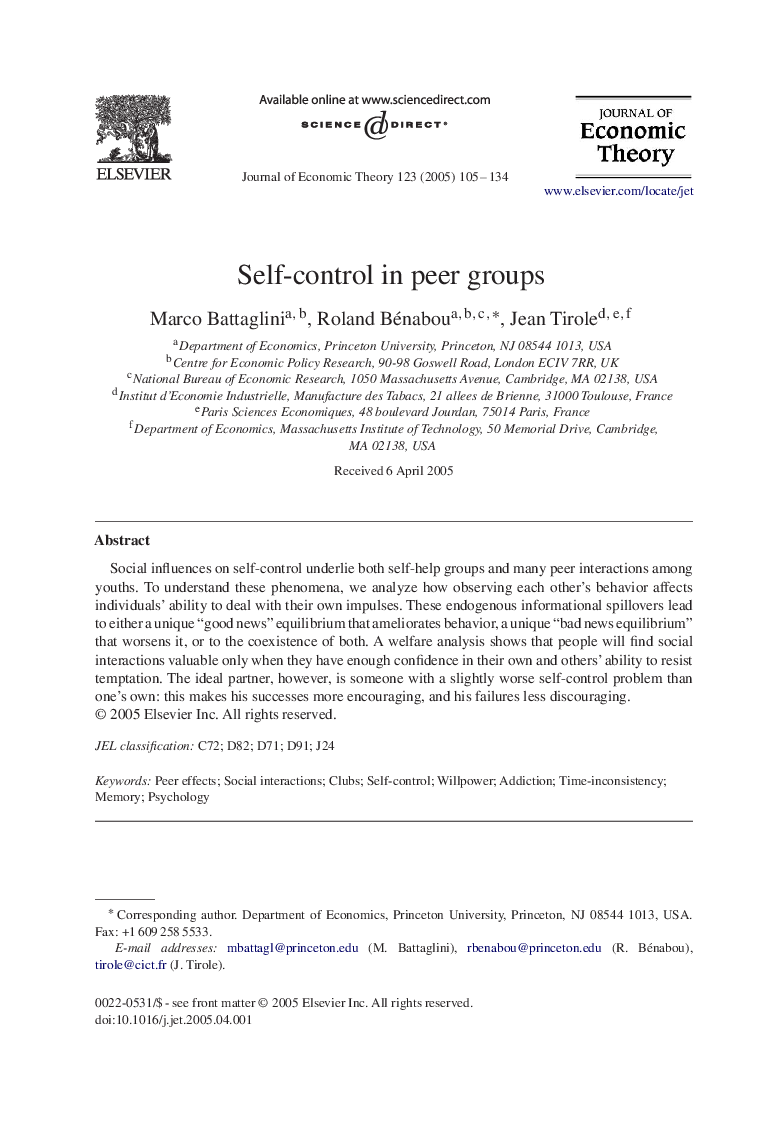| Article ID | Journal | Published Year | Pages | File Type |
|---|---|---|---|---|
| 10474831 | Journal of Economic Theory | 2005 | 30 Pages |
Abstract
Social influences on self-control underlie both self-help groups and many peer interactions among youths. To understand these phenomena, we analyze how observing each other's behavior affects individuals' ability to deal with their own impulses. These endogenous informational spillovers lead to either a unique “good news” equilibrium that ameliorates behavior, a unique “bad news equilibrium” that worsens it, or to the coexistence of both. A welfare analysis shows that people will find social interactions valuable only when they have enough confidence in their own and others' ability to resist temptation. The ideal partner, however, is someone with a slightly worse self-control problem than one's own: this makes his successes more encouraging, and his failures less discouraging.
Keywords
Related Topics
Social Sciences and Humanities
Economics, Econometrics and Finance
Economics and Econometrics
Authors
Marco Battaglini, Roland Bénabou, Jean Tirole,
